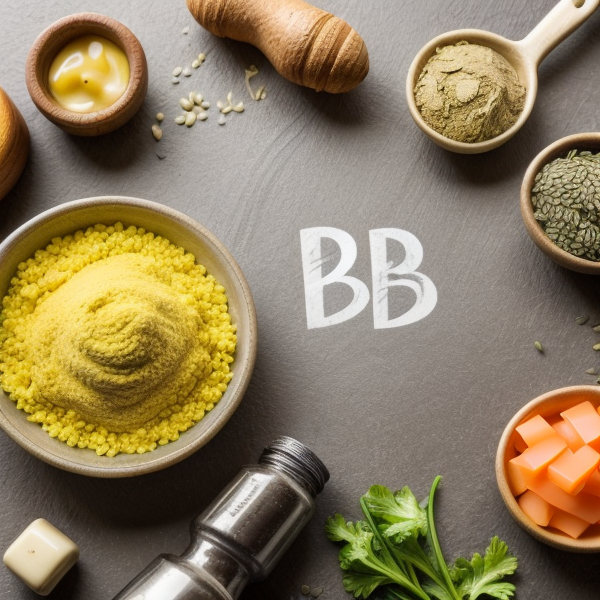Vitamin B12: Sources and Supplements for Vegans

Vitamin B12, also known as cobalamin, is an essential water-soluble vitamin that plays a crucial role in various bodily functions such as red blood cell formation, DNA synthesis, and neurological health. It is naturally present in animal products like meat, fish, eggs, and dairy products. However, vegans and vegetarians may be at risk of developing a deficiency due to the absence of these food sources in their diet. In this article, we will discuss the importance of vitamin B12, its sources, and supplementation options for vegans.
Why is Vitamin B12 Important?
Vitamin B12 is involved in numerous physiological processes, including:
1. Red blood cell formation: Vitamin B12, along with folate, helps in the production of red blood cells that carry oxygen throughout the body. A deficiency can lead to megaloblastic anemia, characterized by large, immature red blood cells.
2. Nervous system function: Vitamin B12 is essential for the proper functioning of the nervous system, including the brain, spinal cord, and nerves. It is involved in the synthesis of myelin, the protective sheath surrounding nerve fibers. A deficiency can cause numbness, tingling, weakness, and cognitive impairment.
3. DNA synthesis and regulation: Vitamin B12 plays a vital role in DNA synthesis and methylation, which help control gene expression. Methylation also helps convert harmful substances into harmless ones.
4. Metabolism: Vitamin B12 is necessary for the metabolism of fatty acids, amino acids, and one-carbon units. It helps maintain a healthy metabolic rate and supports weight management.
5. Immune system function: Vitamin B12 is important for the proper functioning of the immune system. A deficiency can weaken the immune system, making it more susceptible to infections.
Sources of Vitamin B12 for Vegans
While animal products are the most abundant sources of vitamin B12, there are several plant-based sources available for vegans. These include:
1. Fortified foods: Many plant-based milk alternatives, breakfast cereals, and nutritional yeast products are fortified with vitamin B12. Check the nutrition label to ensure they contain adequate amounts.
2. Fermented foods: Some fermented foods, such as tempeh, miso, and natto, are rich in vitamin B12. However, the amount varies widely depending on the source and preparation method.
3. Seaweed: Certain types of seaweed, such as nori and wakame, are good sources of vitamin B12. However, the bioavailability (the amount your body can absorb) is low compared to animal sources.
4. Fortified nutritional yeast: Brewer’s yeast and nutritional yeast are both excellent sources of vitamin B12. However, brewer’s yeast has a strong flavor and may not be suitable for some people. Nutritional yeast, on the other hand, has a milder taste and can be added to smoothies, sauces, or sprinkled over food.
Supplementation Options
If you follow a vegan diet, it is essential to consume vitamin B12 supplements or fortified foods regularly to prevent deficiency. The recommended daily intake of vitamin B12 for adults is 2.4 micrograms per day. Here are some supplementation options:
1. Multivitamins: Many multivitamins contain vitamin B12, especially those designed for vegans or vegetarians. Look for a supplement with at least 6 micrograms of vitamin B12 per serving.
2. Individual vitamin B12 supplements: You can purchase individual vitamin B12 supplements in various forms, such as tablets, capsules, sublingual drops, or lozenges. Choose a form that suits your preferences and needs.
3. Injections: Vitamin B12 injections are another option for vegans who have difficulty absorbing the vitamin from oral supplements or food. These injections provide high doses of vitamin B12 directly into the bloodstream, ensuring optimal absorption.
Conclusion
Vitamin B12 deficiency can cause serious health problems if left untreated. While it is possible to obtain sufficient amounts through a well-planned vegan diet, many people choose to supplement their intake. By understanding the importance of vitamin B12, knowing its sources, and considering supplementation options, vegans can ensure they meet their daily requirements and maintain optimal health.
